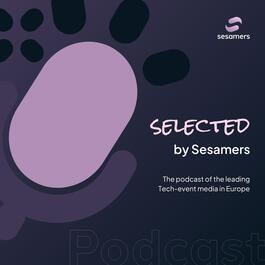
From Surfboards to Sustainable Composites What started as a DIY surfboard made from recycled cardboard quickly turned into a deep-tech material startup. François initially entered—and won—an innovation competition in California. But the surf industry was too niche, so he pivoted to a broader mission: replace carbon-intensive materials in furniture, mobility, and industrial design.What Is Airboard’s Innovation? Airboard transforms recycled cardboard into composite sandwich panels, competing directly with wood, aluminum, and even honeycomb cores. Their breakthrough lies not just in the material—but in the machinery they’ve developed to treat and mold the waste without water or high energy use. The result: lightweight, strong, and fully moldable bio-based composites.Scaling Through Machines, Not Megafactories Unlike traditional manufacturers, Airboard isn’t building one big factory. Instead, they’re creating a scalable machinery platform, inspired by models like Tetra Pak, to enable local production at the source of waste. This distributed approach is designed to keep emissions low and business margins healthy.The Challenges of Hardware-Led Innovation Developing novel materials is hard. Developing machines to produce those materials is even harder. François shares how most of Airboard’s progress has been self-funded or bootstrapped—and why fundraising is now critical to accelerate R&D and scale production. The team is currently raising €2 million to build next-generation machines and meet growing demand.The Power of Events: From Techstars to JEC World Airboard’s journey was accelerated by attending JEC World 2024 as a visitor. There, François connected with Techstars, joined their sustainability accelerator, and gained exposure to investors and industrial partners. A year later, Airboard returned as an exhibitor—now part of JEC Startup Booster, the Innovation Planet, and the bio-based materials showcase.Why Airboard’s Model ResonatesBio-based & circular: They reuse waste without water or chemicals.Low-energy manufacturing: Their machines are analog, efficient, and easy to deploy.Custom shaping: Thanks to composites, the material can be molded into complex designs.No sanding: Their process eliminates time-consuming post-processing steps.The Bigger Vision: Local Microfactories François isn’t chasing headcount or mass centralization. His vision is a network of local microfactories, embedded in places where cardboard waste is abundant. From automotive OEMs to IKEA-style furniture producers, he believes Airboard machines could sit within customer facilities, enabling on-demand, sustainable material production.A Fresh Take on Sustainability When asked what’s most needed for real sustainability in the composites industry, François doesn’t cite regulation or capital. He says: time. Time to think differently, to explore outside the box, and to develop better systems. “The most valuable thing in the world is time,” he says—something big manufacturers often lack.Learn More About Airboard Website: [Coming soon — follow updates on Trashboard] Instagram: @trashboard LinkedIn: François Jaubert Currently raising: €2M to scale production and finalize next-gen machines Be sure to follow Sesamers on Instagram, LinkedIn, and X for more cool stories from the people we catch during the best Tech events!
From "Selected - The Sesamers Podcast"


Comments
Add comment Feedback